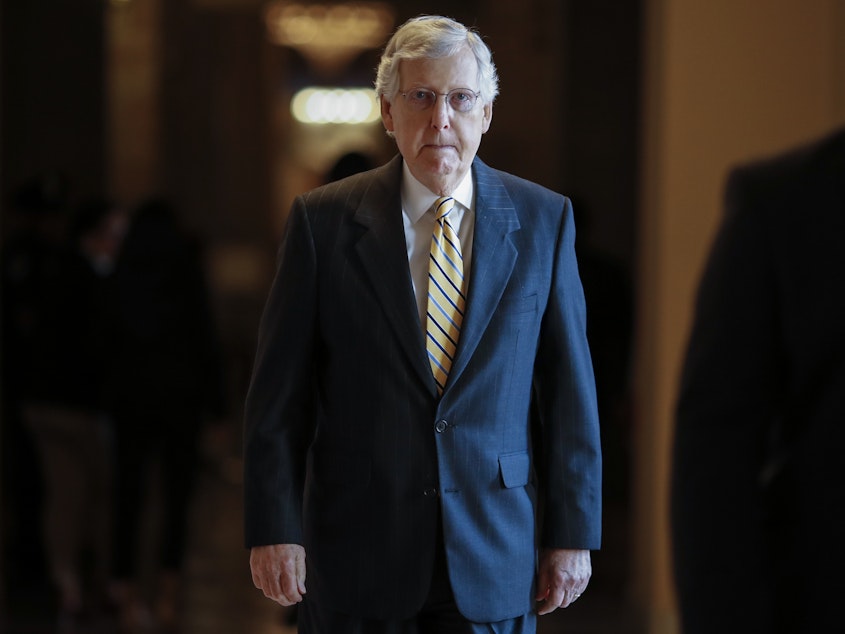Judge Says He Faced No Political Pressure From McConnell To Retire

As new allegations emerge about his motives for retirement, Judge Thomas Griffith says that he faced no political pressure in his decision to retire from the bench.
"My decision was driven entirely by personal concerns and involved no discussions with the White House or the Senate," he said in a statement provided to NPR. Griffith said his wife was diagnosed 11 years ago with a "debilitating chronic illness" and that her health was "the sole reason for my retirement." He said he made the decision to retire in June 2019, and privately informed his family and law clerks at the time. His retirement was announced publicly in March.
Griffith, 65, is a circuit court judge on the U.S. Court of Appeals for the District of Columbia. Griffith is a President George W. Bush era appointee, who has served since 2005.
On Monday, the New York Times reported that Demand Justice, a liberal judicial advocacy group, filed a complaint that raises questions about whether Griffith's decision was tied to efforts by Senate Majority Leader Mitch McConnell to encourage older, conservative judges to retire in order to fill their vacancies with younger, conservative judges ahead of the 2020 election, where control of the White House and the Senate is in play.
In the case of Griffith's retirement, it has paved the way for Justin Walker's nomination to fill the vacancy. Walker, 37, is a long-time McConnell ally who is currently serving as a U.S. district judge of the Western District of Kentucky, McConnell's home state.
Sponsored
The Demand Justice complaint was directed to the U.S. Court of Appeals, where the court's chief judge, Sri Srinivasan, has asked Chief Justice John Roberts to assign another circuit to look into the complaint about whether any ethical improprieties occurred. Griffith's statement refutes the core allegation — that his decision was fueled by political considerations or the result of a pressure campaign.
These allegations are likely to come up at Walker's confirmation hearing on Wednesday before the Senate Judiciary Committee.
Democrats broadly oppose Walker's nomination. He was rated "not qualified" by the American Bar Association. However, unless support for him is diminished among Republicans — unlikely with McConnell's backing — he is likely to be confirmed. [Copyright 2020 NPR]



